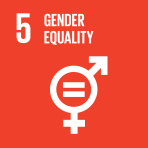Abstract
This paper analyses the gender gaps in access to and use of ICT, as well as ICT-related training, education, and employment opportunities, with a focus on the Europe and Central Asia (ECA) region. It argues that gender equality in access to digital technologies and basic and advanced digital skills, as well as to decision-making, will transform women’s ability to participate at every level in the future economy and influence the digital economy as ICT professionals themselves. Achieving gender equality in digital access and ICT professions requires efforts at institutional and policy levels to harness ICTs to serve the goals of equality and justice, so that the gender-based discrimination and segregation in the labour market are not reproduced in the digital economy, and so that the benefits of data and digitally-driven change accrue equally to all.
- ١٠ يوليو ٢٠٢١


